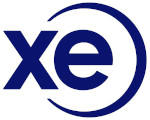The main exception is the Reserve Bank of New Zealand (www.rbnz.govt.nz ), which doesn’t fit into either of these categories and is the country’s central bank, performing a role similar to the Bank of England or the Federal Reserve Bank in the USA. It has a range of functions, including managing the money supply, supervising commercial banks, implementing the government’s financial policy, controlling the exchange rate, providing a banking service to the government and acting as a registrar for government stocks.
Savings banks in New Zealand were traditionally mutual organisations owned by their members or investors, which concentrated on personal savings accounts and mortgages for residential property. In this respect they were much like building societies in the UK and savings and loan organisations in the USA. However, deregulation in the financial sector during the ’80s allowed commercial banks to enter this market. With their greater financial clout and marketing expertise they’ve managed largely to take it over, and as a result many savings banks have either converted to commercial or registered banks or been taken over by them.
Changes in the banking system over the last few years have meant that most individuals and businesses in New Zealand carry out their banking, including savings, loans, mortgages and day-to-day transactions, with one of the registered commercial banks (there were 16 in 2005). Banks operating in this sector include: Australia New Zealand Bank (ANZ, www.anz.com/nz ) and ASB (www.asbbank.co.nz ), formerly the Auckland Savings Bank. Not surprisingly, the ASB is strongest in Auckland but it's also popular throughout the rest of the country and in 2004, for the fifth consecutive year, was rated New Zealand’s number one major bank in terms of customer satisfaction in a University of Auckland survey of bank customers.
The Bank of New Zealand (BNZ, www.bnz.co.nz ) is New Zealand’s largest bank in asset terms and, despite its name, is wholly Australian-owned. The National Bank (www.nationalbank.co.nz ) and Westpac NZ (www.westpac.co.nz ), which probably has the largest market share in the country (1.3 million customers in 2005) and is also the government’s banker.
It’s estimated that only some 12 per cent of the New Zealand banking market is operated by indigenous banks. Note that the New Zealand banking operations of Australian banks are completely separate, therefore customers of Australian Westpac, for example, cannot access their Australian accounts at Westpac in New Zealand, or vice versa.
Some banks are mainly telephone and internet-based, e.g. TSB (www.tsb.co.nz ). PSIS is a financial institution owned by its customers, which offers banking services administered by the Bank of New Zealand, although it isn’t a bank and as such isn’t a member of the Banking Ombudsman scheme nor subject to supervision by the Reserve Bank. The large insurance group, AMP (www.amp.co.nz ), also offers banking services, as does the New Zealand Post Office (at post shops) under the name Kiwibank.
In addition to locally registered banks, there are also many international banks in New Zealand, which are mainly located in the financial district of Wellington and don’t have extensive branch networks throughout the country. Other financial institutions that aren’t registered banks include merchant banks and leasing companies, which mainly serve the business sector. They aren’t authorised to accept deposits from the public and, in any case, registered banks offer a more comprehensive range of services. Finance companies aren’t registered banks, but provide consumer credit such as loans and hire purchase (or time purchase as it’s also known in New Zealand).
All New Zealand banks are efficient and highly automated. You will find that staff, who are generally friendly and informal, work behind low counters or desks rather than armoured glass. This isn’t to say that banks in New Zealand aren’t robbed (they most certainly are), but the transition towards cashless banking has done much to reduce the amount of cash shuffled across bank counters (or used in shops and other businesses).
Opening Hours
Normal banking hours are from 8.30 or 9am until 4.30pm, Mondays to Fridays, although banks may stay open for half an hour later one evening a week (which is the exception rather than the rule). Banks don’t open at weekends and are also closed on public holidays, although bureaux de change open longer at weekends.


